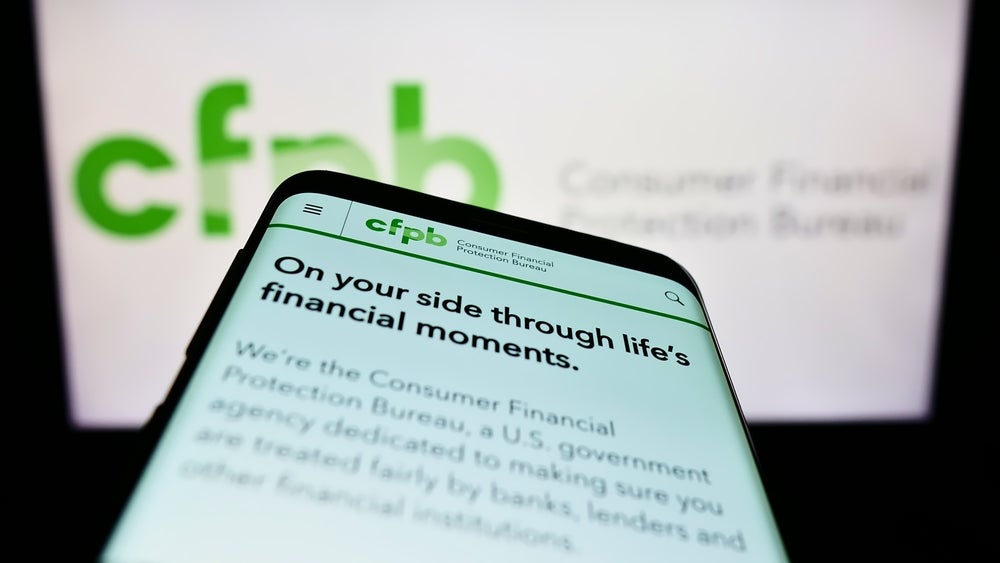
It has been quite a week for the CFPB. On 16 May, it enjoyed a 7-2 win the Supreme Court in the key case against the Community Financial Services Association. The decision was widely expected on the basis of oral argument. But the judgement matters. In summary, it holds that the CFPB’s funding mechanism as set out in the Dodd-Frank Wall Street Reform Consumer Protection Act is constitutional.
And now the CFPB is on a roll. Next in its sights is the Buy Now Pay Later sector. On 22 May, the CFPB ruled that BNPL users merit the kind of consumer protection enjoyed by credit cardholders.

Access deeper industry intelligence
Experience unmatched clarity with a single platform that combines unique data, AI, and human expertise.
Erin Bryan, one of the US’ top financial experts from international law firm Dorsey & Whitney tells RBI that the BNPL sector has been in the CFPB’s sights for several years.
Bryan is expertly qualified to comment. She is a co-chair of Dorsey’s Consumer Financial Services Group. Her regulatory and compliance practice includes advising clients on anti-money laundering laws, electronic banking, financial technology, government examination/supervision, and privacy. She is also the former in-house Senior Corporate Counsel for one of the largest banks in the US.
CFPB action long-awaited: Erin Bryan
“Today’s long-awaited interpretive rule from the CFPB confirms that the Bureau views most digital Buy Now, Pay Later instalment products to be credit card equivalents for purposes of some provisions of Regulation Z,” says Bryan.
“This is the CFPB’s first major policy announcement since the Supreme Court’s decision in CFPB v. CFSA. With this interpretive rule, the CFPB had made it clear that BNPL users should have many of the same rights and protections as credit card users. Specifically, this means BNPL providers will need to have compliant processes to investigate consumer disputes, refund returned products or cancelled services, and provide periodic statements with fee disclosures.

US Tariffs are shifting - will you react or anticipate?
Don’t let policy changes catch you off guard. Stay proactive with real-time data and expert analysis.
By GlobalData“The popularity of BNPL products with consumers has skyrocketed in recent years and the CFPB has taken notice.
The CFPB has been looking at BNPL lenders for several years, starting with an initial inquiry in 2021, the issuance of a market report on the industry in 2022, and a report on BNPL users’ financial profiles in 2023.
“Much of what consumers like about BNPL products is that they are different from traditional credit products. They typically don’t affect a user’s credit rating, the repayment terms are short, and they are available with the click of a button,” explains Bryan.
The key question: will regulation make BNPL products less appealing?
“The key question is whether the CFPB’s regulation of BNPL providers will ultimately make their products less appealing to consumers,” says Bryan.
“What are other agencies doing? This is the most significant regulatory response to BNPL to date. However, other agencies have waded into the debate over BNPL in recent years, with the Office of the Comptroller of the Currency (OCC) issuing safety-and-soundness risk guidance to banks in 2023 regarding BNPL products and the Federal Trade Commission (FTC) issuing online guidance in 2022 regarding the need for BNPL providers to be transparent about product terms, including by avoiding dark patterns that make it hard for consumers to understand the transactions.
The Supreme Court and Chevron
“The next question is whether the Supreme Court’s review of upcoming Chevron decisions will have an impact on this BNPL move,” explains Bryan.
“Because this interpretive rule pushes the envelope past existing law into pure agency interpretation, it will be an attractive target for industry challenge should Chevron be overturned.”
“The CFPB is accepting comments on the interpretative rule. This is just the beginning of the CFPB’s regulation of the BNPL industry,” concludes Bryan.
‘Watch the bad debt treatment unwind’: Grant Halverson
“It is a very interesting move in the US market – just after US Consumer Financial Protection Bureau (CFPB) ‘win’ in the US Supreme Court. This BNPL move seems like no coincidence,” says Grant Halverson, leading Australian payments expert and MD of McLean Roche.
“This will slow down fintech BNPL’s, increase cost and result in regulators enforcing this – so much for the no rules, regulator arbitrage. At this point, the CFPB guidance doesn’t require BNPL providers to assess borrowers’ ability to repay, nor send data to credit bureaus, as is the case with credit cards and small-dollar loans. However, watch this space and watch the bad debt treatment unwind – the blatant stunt of comparing bad debts to sales will be exposed for what it is: sheer bluff and wrong.”







